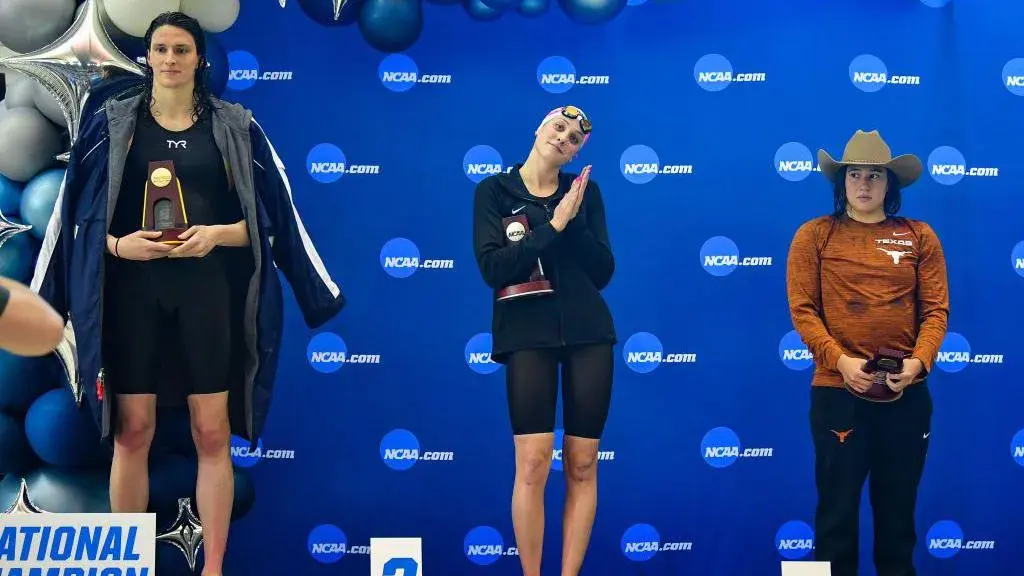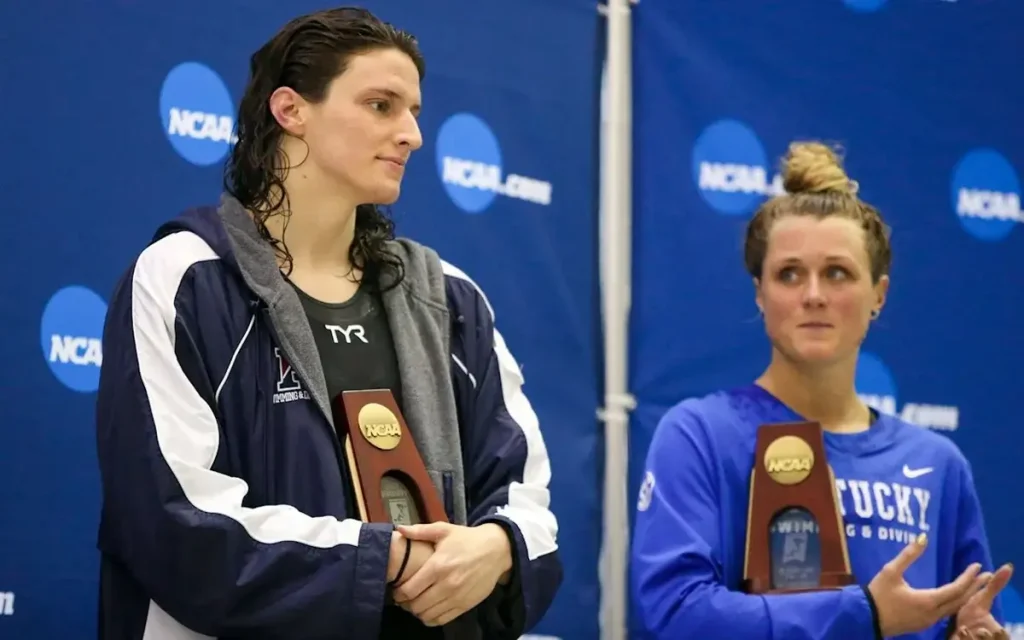The University of Pennsylvania (UPenn) has reached a landmark agreement with the U.S. Department of Education’s Office for Civil Rights, prompting Lia Thomas stripped of titles and a ban on transgender women in female sports. This resolution concludes a federal investigation that found the university violated Title IX—a civil rights law—by allowing Lia Thomas to compete in women’s swimming during the 2021–22 season.
Lia Thomas Stripped of Titles
Lia Thomas, a transgender woman, made history in 2022 by becoming the first openly transgender athlete to win an NCAA Division I national championship in any sport. Competing for UPenn’s women’s swim team, Thomas secured the 500-yard freestyle title, garnering national attention and igniting discussions about transgender athletes’ participation in women’s sports. Prior to transitioning, Thomas had competed on the men’s swim team at UPenn.

Under the settlement with the Department of Education, UPenn has agreed to:
-
-
Ban on Transgender Women in Women’s Sports: The university will no longer permit transgender women to compete on women’s sports teams, aligning with recent changes in NCAA eligibility rules.
-
Restoration of Titles and Records: All individual Division I swimming records, titles, and similar recognitions that were previously held by transgender athletes, including Thomas, will be reinstated to cisgender female athletes who lost to them
-
Public Apology: UPenn will issue a public statement acknowledging the disadvantages faced by female athletes due to the previous policies and reaffirming its commitment to Title IX.
-
Personalized Apologies: The university will send personalized letters of apology to each female swimmer who was affected by the inclusion of transgender athletes.
-
Policy Revisions: UPenn will update its athletic policies to ensure compliance with federal regulations and to prevent future discrimination.
-
Multiple media reports confirm that pressfolders now reflect new record holders and feature explanatory annotations about eligibility criteria.
As a result of the settlement, UPenn has removed Thomas’s records from its official listings. The university’s website now notes that Thomas set program records in the 100, 200, and 500 freestyle during the 2021–2022 season under eligibility rules in effect at the time. However, it remains unclear whether Thomas will lose his personal medals and honors, as the agreement does not mandate the removal of individual awards.
This agreement aligns with the Trump administration’s broader efforts to restrict transgender women from participating in women’s sports. In February 2025, President Donald Trump signed an executive order titled “Keeping Men Out of Women’s Sports,” directing federal agencies to enforce prohibitions against transgender women in women’s sports. The NCAA also updated its policy in February 2025, limiting participation in women’s sports to athletes assigned female at birth.
Title IX Enforcement Concerns
The U.S. Department of Education initiated a civil rights investigation into UPenn’s policies regarding transgender athletes, focusing on potential violations of Title IX—the federal law prohibiting sex-based discrimination in education programs and activities. The investigation concluded that UPenn’s inclusion of Thomas on the women’s swim team disadvantaged cisgender female athletes, prompting the university to reconsider its policies.
The decision has elicited mixed reactions. Supporters of the ban, including former swimmer Riley Gaines, have praised the move as a victory for fairness in women’s sports. On the other hand, LGBTQ+ advocacy groups, such as the Human Rights Campaign, have criticized the decision, arguing that it undermines the rights and dignity of transgender individuals.
Education Secretary Linda McMahon called the settlement a “victory for women’s sports,” attributing the outcome to Donald Trump’s leadership on enforcing Title IX protections.
The University of Pennsylvania’s decision to ban transgender women from women’s sports teams and Lia Thomas stripped of titles is a pivotal moment in the ongoing discourse surrounding inclusion, fairness, and rights in athletics. As policies continue to evolve, the balance between ensuring equal opportunities for all athletes and maintaining fair competition remains a complex and contentious issue.


